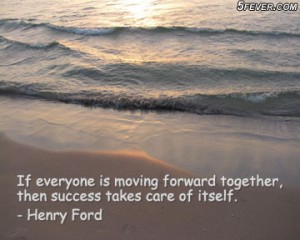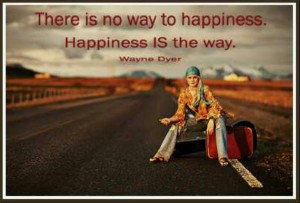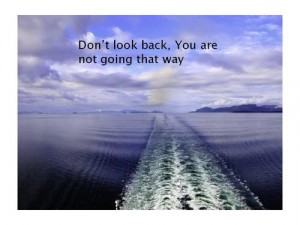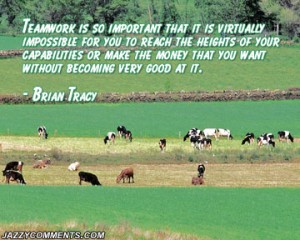It is natural human inclination to socialize and cooperate with other human beings on this planet. As few as a hundred years ago and ranging all the way back to our very first existence, not only was it a natural inclination but it was a necessity to survive.
[toc]
Today’s world is a bit different because a lot of people like to be “independent”. With this independency kick that everyone is on, there has also been a rampant increase in mental illness and disease; things like depression, anxiety, and more. Also during the last 100 years the level of happiness human beings experience has decreased substantially.
The only exception to these two things is with women because they were already bat shit crazy and depressed from trying to cooperate with men. Now that they are independent they are becoming happier (just kidding, there might be some truth to this though). Overall as a species our levels of happiness have come down.
Positive Pyschology
For many years scientists have studied negative psychology or the supposed pathological state of the brain and its many forms of maladaptation to the modern world resulting in depression and other types of serious mental disorders, such as, Parkinson’s disease, Schizophrenia, and ADHD. Recently, however, a new type of scientific study has formed called positive psychology which has began studying happiness.
The culprit in many mental disorders comes from a lack of a naturally produced chemical called dopamine. When dopamine levels drop or cease to exist, bad things tend to happen to your brain. Dopamine will be discussed later on in this article in more detail.
Hedonic Treadmill
There is a modified theory called the Hedonic Treadmill which was derived and expanded upon from other similar theories. You can read more about it in the link in references below, but essentially, researchers have found that 50% of your happiness is determined by your genetics, 10% is determined by things like your job, income, and social status, and the other 40% is determined by your intentional activity or what you specifically choose to do for fun.
The most striking thing to me that I’ve heard is that half of your happiness is genetic. That no matter what you do, human beings have a natural range of happiness they return to when they stabilize from the other 50% of things in life.
Dr Wayne Dyer
Of all the self help books I’ve read by Wayne Dyer and other happiness gurus, I have never heard this addressed, but I wish I had one of their opinions on this research to share with you. I would like to know if these beliefs are shared by people such as Dr Dyer and whether or not this affects their suggestions and strategy to be happy.
I would contend that Dr Dyer would say that you can choose to indefinitely remain in happiness by exercising your 40% intentional activities and minimizing the damage caused by the 10%, and that the genetic makeup of your happiness level doesn’t have to have an impact. The theory however that some people can be genetically unhappy people is quite interesting to me.
Can Money Buy Happiness
The answer to this question is yes, although most people contend that money does not buy happiness, that is blatantly not true, rather, making more money than you need to meet basic survival requirements and needs has been shown not to increase happiness levels.
For people who are homeless and starving, it has been shown that giving them money so they can buy food, shelter, and basic necessities has substantially increased their level of happiness. Adversely, it has been shown, once you reach an income level where your basic necessities are met, adding more money has little impact on increasing your happiness. Researchers have found that after the $50,000 a year in income mark has been reached in the United States that there is virtually no difference between whether you make $50,000 or $50 million a year as far as happiness is concerned.
Human Cooperation Increases Happiness
Human Cooperation and interaction can affect dopamine levels in your body. The end result? Greater happiness. Dopamine is an organic chemical of the catecholamine family and is also a monoamine neurotransmitter. Very similar to Serotonin, which is also a monoamine neurotransmitter, it makes you feel good.
I will be honest with you, I dislike working alone and doing things alone. I don’t even play video games anymore that are single player unless I have someone to share the experience with because I don’t have an interest in accomplishing things of that nature just for myself.
I prefer to work on teams and complete projects that requires extensive collaboration, discussion, and creative solutions to unique problems. It really makes me feel like I’m part of something bigger and sharing those experiences, both the ups and downs, makes me feel a shit ton better.
The same holds true not just for work, but in everything I do. Adding people to the equation makes it more fun. I’ll be honest though, I prefer to read alone and write alone for things such as this article, but I do not mind reading or writing in groups that involve discussion like a reading club or writing parts of a bigger project. If I end up writing for a bigger project I prefer to be writing near someone so that our computers are in the same room or area in case there’s something I’d like to discuss. When I am together with others as a unit and working on something together, I find it highly motivating and inspiring to say the least.
The same holds true for any type of sport I’ve ever played. Sure, I can take a bag of balls to the field and throw them up and hit them all, but even adding just someone to pitch them to me increases my level of happiness and makes me feel a lot better. It’s great having someone else involved in something you do because you form a bond and more than just yourself cares about what you are doing.
This is probably the basis behind study groups, group projects, team sports, and even why they say in business there is no I in team. Adding more people can substantially increase your output in everything but adding the wrong people can negatively impact all activity as well. Surround yourself with good people and friends, and do stuff together. It doesn’t matter what it is. Even drinking beer with another person is better than drinking alone. If you maintain at least this aspect of human cooperation in your daily life you’ll be a happier person in the long run.
Remember, depression and every type of mental disorder that exists today was virtually unheard of 200 years ago. It’s not because science didn’t exist or medicine so there was no way to treat it but rather because people just weren’t normally unhappy unless they weren’t having their basic needs met. There is no medicine that could substitute for food and shelter. Once our ancestors and hunter gatherer societies needs were met, they were as happy as could be.
It’s truly all the leisure time and unneeded stress in today’s environment that has brought along the problems of unhappiness. With all of this time it becomes hard to figure out what to do with yourself. No one had to worry about retirement, paying bills, which car to buy, the price of gas, or whether or not they were going to get fired in paleolithic times.. Life was simple, either kill the buffalo and eat or don’t and starve.
In the old days, you always had a purpose and hardly any free time. There were no video games or anything of the sort to get addicted to. In today’s world, we need to continuously keep a purpose or life mission and work toward it. Anytime you fall off your course and get into a void or slump, your mind plays tricks on you, and you become unhappy. Stay busy with purpose! Doing just to do is mind numbing and oftentimes depressing, it won’t work. Find something you truly enjoy and do it.
References:
http://en.wikipedia.org/wiki/Dopamine
http://en.wikipedia.org/wiki/Hedonic_treadmill
http://en.wikipedia.org/wiki/Serotonin






Leave a Reply